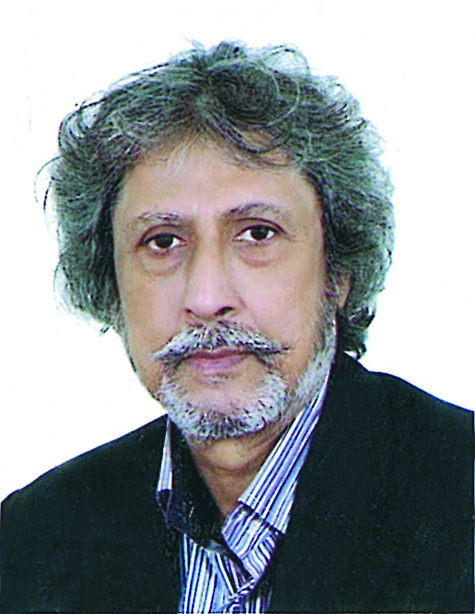100 years of gratitude

Bengal has been blessed with the arrival of Sheikh Mujibur Rahman, a missionary of Biblical dimension, sent by Providence for the deliverance of an oppressed nation – Bengalis. The nation had to wait for 23 years for a leader who could walk up to the formidable oppressors and strike fear in their heart. The leader prepared the nation to take up arms and fight like they have never fought before. It was a fight to the last drop of blood. It was a fight for their very existence. It was a fight for a new flag.
History tells us that there was no leader like Bangabandhu in Bengal who had the courage and intelligentsia to challenge the mighty military edifice of Pakistan in its own game. At the end, Bangabandhu prevailed as he had the unwavering support, love and prayer of 7.5 crore Bengalis to make his hands strong.
He came to fulfill a mission – deliverance of the Bengalis to a new land of freedom - and he accomplished it to the bewilderment of the entire world. Bengalis will remember him for many millennia and sing hymns in his praise.
Bangabandhu Sheikh Mujibur Rahman’s political journey reminds one of the eventful voyage of Odysseus, king of Ithaca, as depicted by Homer in his Epic titled “Odyssey.” Like Odysseus, he came out victorious every time by removing all the obstacles thrown before his path.
History tells us that there was no leader like Bangabandhu
in Bengal who had the courage and intelligence to challenge
the mighty military edifice of Pakistan in its own game
The Pakistani military rulers found it difficult to match his clever strategy and his overall discernment of the ongoing development. He was too intelligent for his political rivals and the military generals. They had no clue as to how Bangabandhu under their very nose was planting the seeds of freedom in every Bengali heart from 1948 till 1971. They made one mistake after another and Sheikh Mujib cashed in on them. They failed to notice how through the mist, he has been maneuvering the boat – the Bangali nation - towards the final shore of an independent Bangladesh. This story of 23 years is no doubt an Epic of Homeric proportion.
World leaders showed their eagerness to meet him and shake his hands. They learned about his struggle for 23 years to free his nation from the clutches of foreign occupiers. He was compared with the Himalayas. He was called the Poet of Politics. They recognised him as the architect of Bangladesh. A big leader of a small country, he walked tall amongst top world leaders of his time. In a 2004 BBC poll, Sheikh Mujibur Rahman was voted the Greatest Bengali of all time.
No doubt, the story of liberation of the Bangalis from the clutches of Pakistanis will always remain at the top of all stories of deliverance in the world. Bangabandhu inherited a war-ravaged country with communication system in disastrous condition. Major roads and highways, railway bridges and culverts, were blown away during the 9-month long liberation war.
Before turning his attention to solving these problems, his sharp political sense warned him that the masses will soon become wary of the presence of a large number of Indian troops in the country. He could realise that his nation building endeavors must begin after the departure of the Indian troops. He took up the matter with Indira Gandhi, the premier of India, and secured her words. As promised, India withdrew its troops by March 1972.
Rebuilding a war-ravaged country was never an easy task and yet, undaunted, Bangabandhu took up the challenge to start from scratch. First and foremost he took stock of the food situation and found out that there was no foodgrain in the government silos and not enough foreign currency reserve in the central bank to import food and other essential commodities.
But because of his foreign policy of friendship with all, the United States formally recognized the newly independent country on April 4, 1972 and offered US$300 million in aid. Four days later, the United States and Bangladesh established diplomatic relations at the embassy level. The consulate-general was officially turned into an embassy on 18 May 1972. Relations between Bangladesh and the American-led Western world started to improve since then.
Bangabandhu set up Trading Corporation of Bangladesh (TCB) to import essential commodities like milk, sugar, salt, pulses, soap, cooking oil, kerosene, clothes etc., to thwart the attempts of private importers to make windfall profit on low quality products. When his government issued Open General License (OGL) to private importers they imported rag-like cloth and sold them as sari. There are many more examples of wide-spread looting by the private sector in the name of importing goods.
In three and a half years, Bangabandhu took many development policies and programmes that strengthened the foundation of the country. His initiative to create a Constitution for the country resulted in having one within one year. The Constitution adopted four fundamental principles of "nationalism, secularism, democracy, and socialism."
Today we are mourning his death in the hands of some deranged army officers, jawans and some civilian traitors who had enjoyed many favours from Bangabandhu during his rule.
Though his sad end reminds us of the Greek tragedies, yet we must remember that heroes never die. They live in the hearts of the followers for millennia who keep telling and retelling the story of valour to their progeny.
Bangabandhu Sheikh Mujibur Rahman will be remembered and discussed as long as a single Bangali will remain alive on earth. A persona of his stature comes only once in a millennium.
Shahnoor Wahid is Advisory Editor of Bangladesh Post




